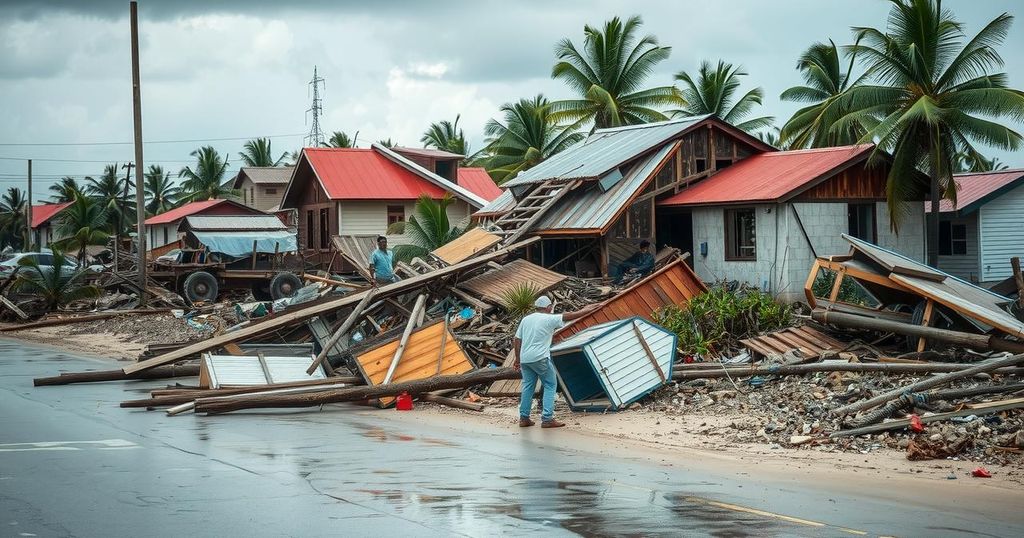Severe Impact of Cyclone Chido on Mayotte and Mozambique Indexing Humanitarian Crisis

Cyclone Chido has severely impacted Mayotte and Mozambique, causing significant destruction and a humanitarian crisis. With hundreds of thousands affected, the death toll continues to rise. Immediate needs include shelter, food, and mental health support for the traumatized populations.
Cyclone Chido has wrought significant destruction across Mayotte and Mozambique, leading to an escalating humanitarian crisis. Following its passage from Madagascar through the Comoros to northern Mozambique and southern Malawi between December 14 and 17, the cyclone brought devastating winds of up to 243 km/h and heavy rainfall, resulting in extensive infrastructure damage. Power, water, and communication services have been severely disrupted, leaving hundreds of thousands vulnerable and in need.
As of December 23, the official death toll has risen to at least 120 in Mozambique and 35 in Mayotte, with thousands more injured. In Mayotte, the cyclone flattened homes, with many residents, including young children, expressing their despair. Kamar, an eight-year-old boy, shared the distressing news of his lost home, pleading for help with essential supplies: “I hope that everyone is safe, I hope that my school will be repaired and that there will never be another cyclone.”
The situation in Mozambique is dire, with approximately 380,000 individuals affected, including over 90,000 children in the Cabo Delgado province. Local officials report that the Mecúfi and Metuge areas were particularly impacted, with 99% of buildings destroyed in Mecúfi, rendering 16,000 families homeless during the rainy season. Humanitarian organizations continue to assess the needs of the affected populations, emphasizing immediate requirements for shelter, cooking utensils, and mental health support to assist those traumatized by the cyclone’s devastation.
Claire, an emergency nurse stationed in Mayotte, described the scale of the destruction, declaring, “It was as if everything had died.” Her observations reflect the extensive loss of greenery and the obliteration of homes and infrastructure that define the island’s landscape. She underlined the urgent requirement for food, water, and waste management solutions.
Humanitarian Initiative (HI) is actively coordinating with French authorities and local organizations to provide relief and support. They are conducting assessments in Cabo Delgado and Nampula regions, focusing on vulnerable groups, including persons with disabilities. The immediate future remains uncertain as the recovery efforts are thoroughly underway.
The recent passage of Cyclone Chido has posed a significant humanitarian challenge for the islands of Mayotte and regions of Mozambique. Historically, cyclones in this part of the Indian Ocean have caused various degrees of destruction, but the intensity and scope of Cyclone Chido appear unprecedented. In December, it impacted not just infrastructure but the very livelihoods of thousands of individuals in a matter of hours. The extent of damage emphasizes the need for urgent intervention by humanitarian organizations and local governments to mitigate the impact of such disasters and support recovery efforts.
The aftermath of Cyclone Chido has highlighted the immediate need for humanitarian assistance in Mayotte and Mozambique. With rising death tolls and extensive property damage, the situation continues to deteriorate, particularly in vulnerable areas like Cabo Delgado. It is essential for humanitarian organizations, alongside local and international partners, to coordinate efforts to provide shelter, food, and mental health support to those affected. The resilience and recovery of the impacted populations will largely depend on the speed and effectiveness of these interventions.
Original Source: reliefweb.int







